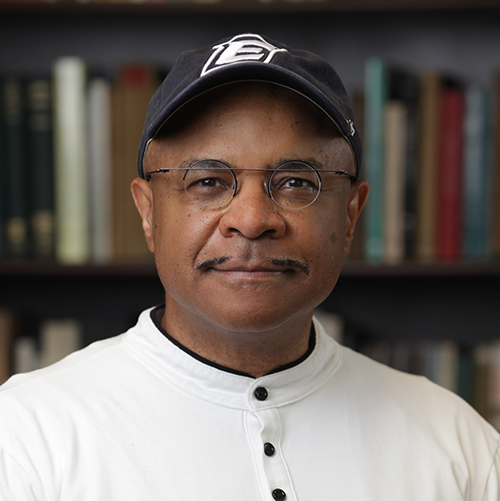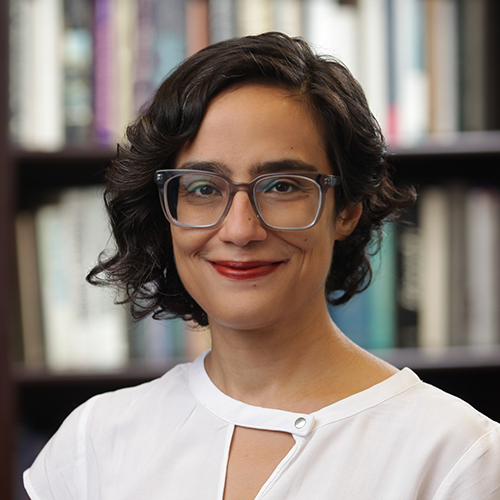Undergraduate Opportunities
Honors Program
Back to topPhilosophy Majors with an overall GPA of 3.7 or higher at the end of their junior year are invited to pursue Honors in Philosophy. Students who do not have an overall GPA of 3.7 or higher can petition the Honors Program to waive this requirement; waivers are, however, granted very infrequently.
The Honors Program is a two-semester program. Students pursuing Honors in Philosophy can register for up to 4 credits of PHIL 495A during the first semester and up to 4 credits of PHIL 495B in the second semester.
If you are interested in pursuing Honors in Philosophy, you should, by the end of your junior year, make arrangements with a philosophy faculty member to supervise your honors thesis.
The requirements for graduating with Honors in Philosophy are as follows:
- Overall GPA of 3.7 or higher.
- Completion of an honor's thesis under the supervision of a Philosophy Department faculty member. Email Undergraduate Administrator Parker Ciliax for thesis completion forms.
- Successful oral defense of this thesis before a committee consisting of at least 3 faculty members, one of whom must be from outside the Philosophy Department.
As a junior, please pay attention to the announcement for a meeting about the Honors thesis in the spring semester. There you will get an introduction and can raise questions.
Read more about the honors program on the Emory College of Arts & Sciences webpage.


Phi Sigma Tau
Back to topEmory University has an active Phi Sigma Tau undergraduate philosophy honor society chapter. Due to a generous 2006 grant, The Ronald and Patricia Nicholson Endowment has enabled us to acknowledge our new members each spring with a formal celebration attended by the department faculty. During the year, Phi Sigma Tau sponsors a monthly Philosophy Circle program to which all undergraduates are invited, as well honors thesis workshops in the fall and spring semesters (see below).
Current Phi Sigma Tau officers are:
Kairos Wu, President
Junze Chen, Vice President
Elise Smith-Davids, Secretary/Treasurer
Purpose
To serve as a means of awarding distinction to students having high scholarship and personal interest in philosophy; to promote student interest in research and advanced study in this field; to provide opportunities for the publication of student research papers of merit; to encourage a professional spirit and friendship among those who have displayed marked ability in this field; to popularize interest in philosophy among the general collegiate public.
Eligibility
Undergraduate students are eligible for membership if they have declared a philosophy major, completed three semesters of college courses with a minimum 3.2 GPA, and completed five philosophy courses with a minimum 3.5 GPA in those courses.
Philosophy Circle Program
Each month, Phi Sigma Tau sponsors a Philosophy Circle, in which a senior faculty member presents and leads a discussion on a topic of his or her special interest with a group of undergraduates. Though the honor society sponsors these discussions, they are open to any interested undergraduates, including those who have never taken a philosophy course and are interested in discovering more about the subject. The Circles take place early each month in the intimate and Michael Sullivan Reading Room (202 Bowden Hall). If you would like to learn more about the Philosophy Circles, please email Phi Sigma Tau President Kairos Wu or chapter advisor Prof. Blanes-Martinez.

Philosophy Club
Back to topThe Emory Philosophy Club seeks to foster philosophical discussion among interested students in an informal, student-friendly environment. We aim to provide students with an outlet for discourse about philosophical questions that are important to them. The club has been re-instituted as of Fall 2022 and meets once a month at 6pm with exact dates shifting according to academic calendars. Meetings are student-led although guest speakers may join occasionally. We discuss a range of topics from contemporary moral issues (death penalty, genetic engineering) to more abstract questions (free will, the human condition, the good life) and use pop-culture media to do so (Black Mirror, viral videos/trends).
New: There is no formal membership requirement: all undergraduates are welcome, including (and especially) those who have never taken a philosophy course. If you would like more information or would like to receive meeting notices by subscribing to the Philosophy Club Listserv, please email the president, Eunjae Thompson (eunjae.thompson@emory.edu), the club vice president, Ozan Demiroglu (ozan.demiroglue@emory.edu), or the club advisor, Prof. George Yancy (george.d.yancy@emory.edu). You can also find us on Instagram at @emoryphilclub.

Journal of Society, Politics, and Ethics
Back to topEmory Journal of Society, Politics, and Ethics is a peer-edited and peer-reviewed interdisciplinary undergraduate journal made by and for Emory College of Liberal Arts and Sciences students. JSPE is a group of Emory College undergraduates with a mission to unlock the superpower of interdisciplinary humanities via public-facing projects at the intersections of society, politics, and ethics.
Housed in and funded by the Department of Philosophy, JSPE was first envisioned by one of our distinguished alum, Sarah Lee (ECAS – Philosophy ‘20). After a hiatus between 2020-2022, we have re-relaunched the JSPE as an Interdisciplinary Public Humanities Project. For more information check out JSPE's Special Issue on Justice, Freedom, and Revolution.
Going forward, JSPE aims to publish two (2) issues a year, one in the Fall and one in the Spring. They are especially interested in creative or academic work that is relevant to current sociopolitical concerns and pushes the boundaries of the humanitarian disciplines.
For more information, visit the JSPE website or email them at emorysjpe@emory.edu.

Awards and Prizes
Back to topCharles Hartshorne Prize (Essay Competition)
The Charles Hartshorne Prize is awarded annually to the outstanding essay submitted in an undergraduate Philosophy course at Emory College of Arts and Sciences (While many entries are by nomination of professor, self-nominations are also welcome – watch for announcement in the Spring). To be eligible for consideration, papers must be between 7 1/2 and 15 pages or 1,750-4,500 words, whichever is greater. The due date is usually in March. It carries a monetary award of one hundred dollars.
Charles Hartshorne (1897-2000), BA Haverford/Harvard, PhD Harvard, was a member of our faculty from 1955 until 1962. From 1923-1925, he studied with Husserl in Freiburg and with Heidegger in Marburg. From 1925 till 1928, he worked with Whitehead on process philosophy that would be of the greatest impact on his philosophy.
Past Winners
2025 Anushka Nayak2024 Martin Li
2023 Josh Rubin
2022 Steve Gaunt
2021 Jonathan McCutchen
2017 Daniel Hanfelt
2016 Brian Wiora
2015 Martin Sigalow
2014 Harrison Farina
2013 Madhava Martin
2011 Aaron David
2010 Frank Lemon
2009 Elizabeth Rogawski
Paul Kuntz Prize
The Paul Kuntz Prize, established in 1989, has been given to the best performing senior in philosophy at graduation. Beginning in 2022, two Kuntz Prizes will be awarded: one to the best performing senior in the traditional philosophy major, the other to the best performing senior in the PPL major. Each prize carries a monetary award of one hundred dollars.
Paul G. Kuntz (1915-2000), BA Haverford, PhD Harvard, was chair of the Emory Philosophy Department from 1966 to 1969 and belonged to our faculty until 1985. Besides his publications on Hume, Lotze, Lovejoy, Russell, and Whitehead, he also engaged in the foundation of the Santayana Society, the Ghandi-King Society, and the International Society of Metaphysics.
Past Winners
2025 Josh Rubin (PHIL), Max Leifman (PPL)2024 Abigail Brickman, Jacob Palmer, Lucienne Scully, & Liam Wilkie (PPL) | Saanya Kapasi, Chujie Qiu, & Braden White (PHIL)
2023 Joe Chomoun & Adeline Yang (PHIL) | Lara Drinan Yeganeh (PPL)
2022 Ashley Bruder (PHIL) | Noah Taylor & Hannah Risman (PPL)
2021 Katie Pleiss
2017 Amy Tang
2016 Alexa Cucopulos
2015 Gino Eli
2014 Steven Christ
2013 Hanna Haejin Kim
2011 Christina Young
2010 Anna Hadas de Groot
2009 Sarah Anne Pohlman